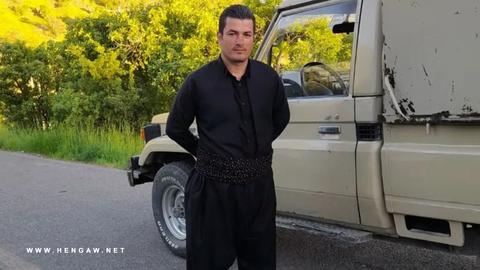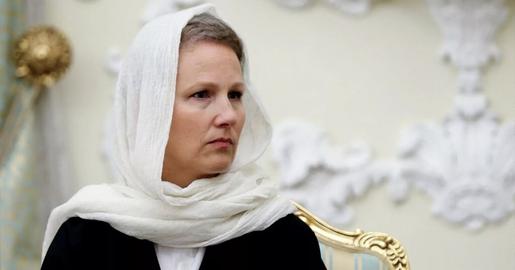Iran’s Supreme Leader Ali Khamenei has ruled out the holding of popular referendums on state policies amid widespread popular discontent toward the Islamic Republic.
Iranian officials have faced calls for a referendum on the Islamic Republic itself during nationwide anti-government protests that erupted in September 2022, with a former president and an ex-prime minister suggesting such votes should be held to bring the fundamental changes sought by the people.
Khamenei, who has the final say on all important state matters, rejected the idea on April 19, asking during a meeting with university students, “Where in the world is this done? Is it possible to hold a referendum for various issues of the country?”
“For any single issue, the country would be engaged in debate and arguments and polarization for six months, so that a referendum can be held on that issue,” the 84-year-old cleric added.
Earlier this month, former President Hassan Rouhani, a relative moderate who was in office from 2013 to 2021, suggested holding referendums on domestic and foreign policies, saying that people’s problems must be resolved through fundamental change.
In February, ex-Prime Minister Mir Hossein Musavi, an opposition figure who has been under house arrest since 2011, called for a referendum and the drafting of a new constitution .
The Islamic Republic holds regular presidential and parliamentary elections overseen by clerical bodies that vet candidates.
Under the constitution, a referendum is possible if two-thirds of parliament votes for it and a constitutional body approves.
Iran held referendums to establish an Islamic Republic and approve a new constitution shortly after the 1979 revolution. It held another referendum in the late 1980s to amend the constitution.
The country saw months of widespread protests sparked by the death of a young woman who had been detained by the morality police for allegedly violating the Islamic Republic’s strict dress codes.
The demonstrations rapidly escalated into calls for the overthrow of Iran’s ruling clerics, marking a major challenge to their four-decade rule.
visit the accountability section
In this section of Iran Wire, you can contact the officials and launch your campaign for various problems



























comments